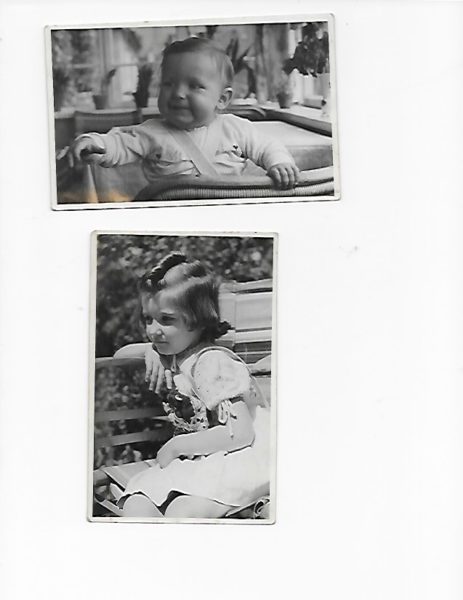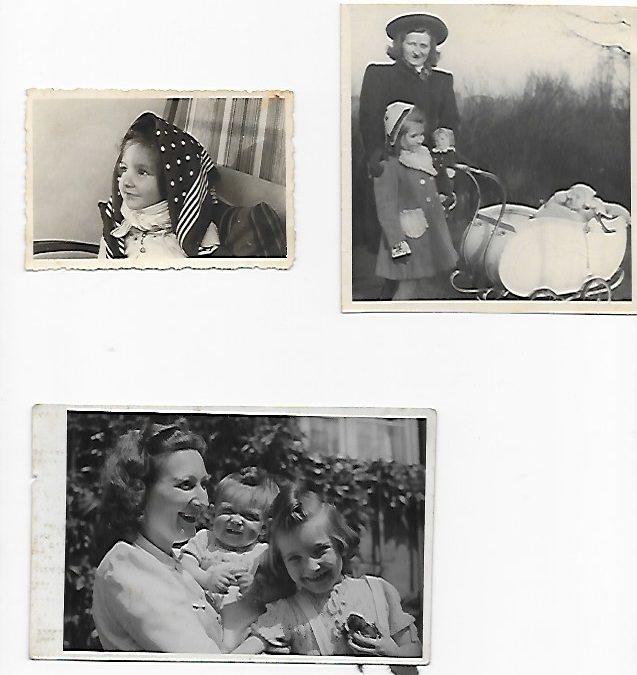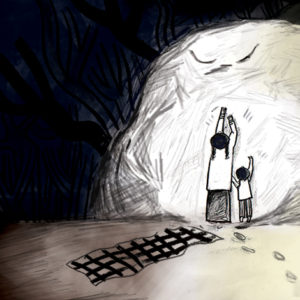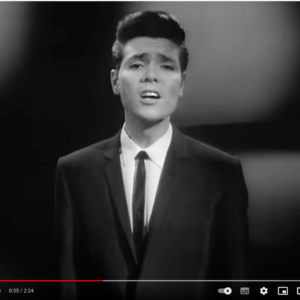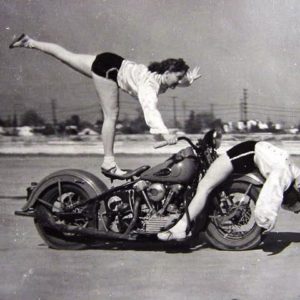One of my earliest memories is running naked through the house after my evening bath to find my father, my Papa, for the nightly ritual of his taking me into his arms, and calling me his little “Naktfrosch” (naked frog). But it was not the frog label that stuck as a nickname. Someone started calling me “Hasele” (little rabbit), which, to my great embarrassment and annoyance, family members kept calling me well into my school years.
Another early memory is from a family outing in the countryside where we loved to escape from the sooty and polluted air of Hindenburg and for the fresh food that our hosts were happy to sell to us. On a walk with family, maybe some Sunday afternoon, through fields and woods, we came to a signpost that said, “Stop! Do not go beyond this point! This is the border.” I remember tearing loose from my mother’s hand and running past the sign, around it and back, heart pounding. It was the first time I had gone abroad, the beginning of a lifelong fascination with foreign travel.
Just as little children in this country are told, little German kids were also told that it is the stork that delivers babies. When my mother knew that she was pregnant again, she wisely decided to involve me. She gave me sugar cubes to put on the sooty windowsill so that we might attract a stork who then would bring us a baby. Later, she let me put my ear on her huge belly to hear and feel the life within. Oddly, it never occurred to me to question how the stork got the baby in there. So, finally, on July 2, 1942, when my little brother, Michael, was born a few months before my 5th birthday, I had ownership in the event. I remained my mother’s partner in this venture. She allowed me to watch him nurse, and even gave me a taste of what he was drinking, squeezing from her breast a few drops of milk onto a teaspoon. Micky, as some of us still call him today, was a nine-pounder, born a little bruised but with a button nose and rolls of fat. My mother, showing him off to the family who visited her in the hospital, compared him to a little boxer. Unlike me, he had the nursing down pat from day one.
Once home, we would soon learn that Micky had a loud voice and he cried so much, maybe from hunger, and so fiercely that he suffered a hernia, and his little navel, instead of looking like a dimple stuck out like a little button. Slowly he outgrew these early difficulties, as in time more solid foods were added to his diet to keep him from crying. The mashed bananas that had been my snack when I was his age, were now no longer available. In their place Micky was offered juice, that was made by squeezing grated carrots through a napkin into his bottle. This daily portion of carrot juice gave his fat cheeks a golden glow. Everyone agreed, he was very, very cute.
There was good news not only at home but also on the national stage. By the time Micky was born, Hitler had advanced through Belgium and the Netherlands into France. A large part of that country, including Paris, had already been occupied for over a year. I have recently read that during this period, 8 percent of the food production of occupied France was diverted to Germany, creating famine in the country of origin. Unfortunately, none of that wonderful food, for which France was and still is so deservedly famous, made its way as far East as where we lived.
By now, in addition to carrots for bananas, Germans had to get used to many other substitutions. The word “Ersatz” (substitute) conveys seriously bad connotations in Germany to this day. Germans had to get used to roasted barley in the place of coffee, margarine instead of butter, potato starch where the recipe asked for white flour and many more such unpleasantries. However, for a while more, our family was never seriously short of food. My father proved to be a savvy provider.
